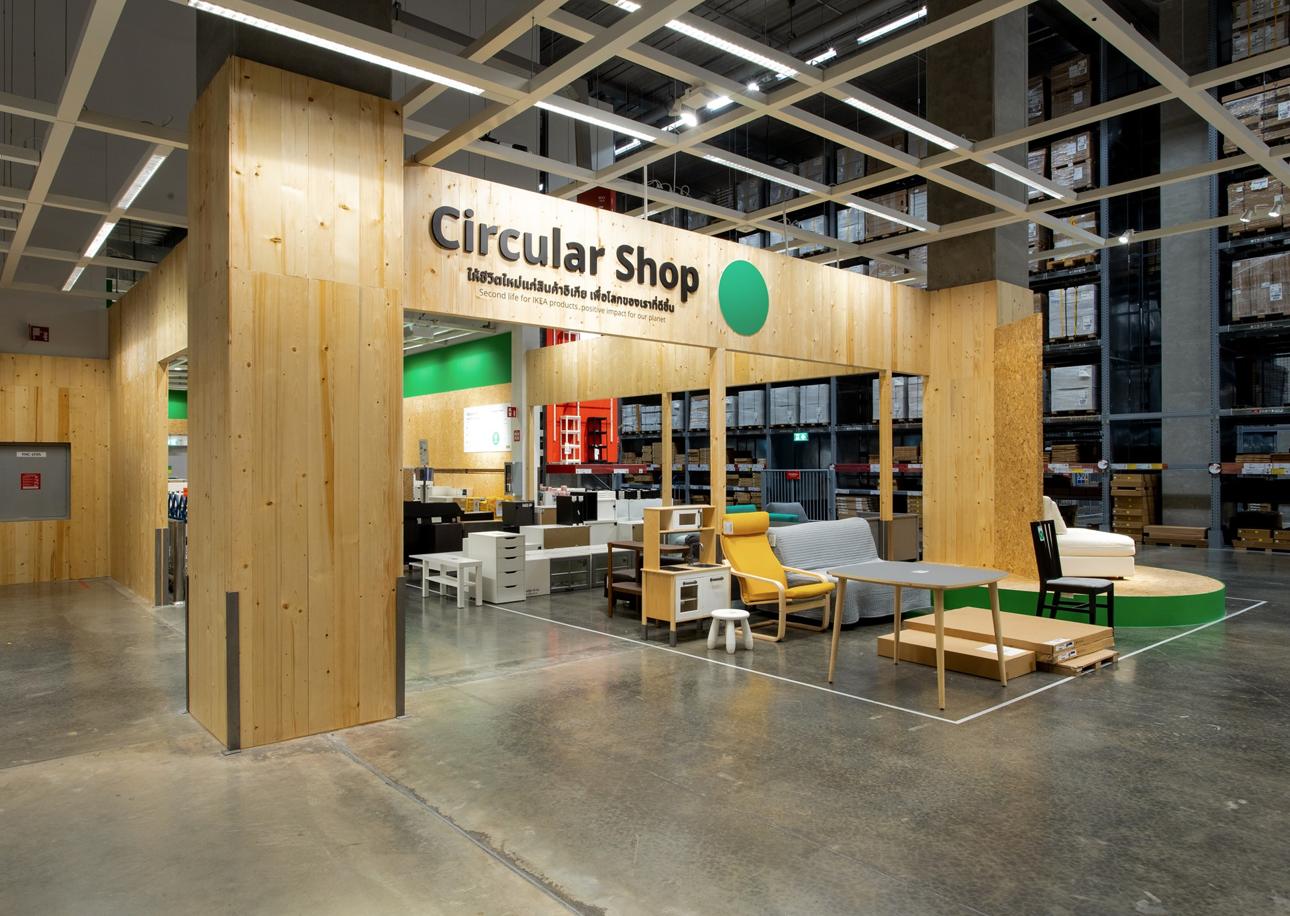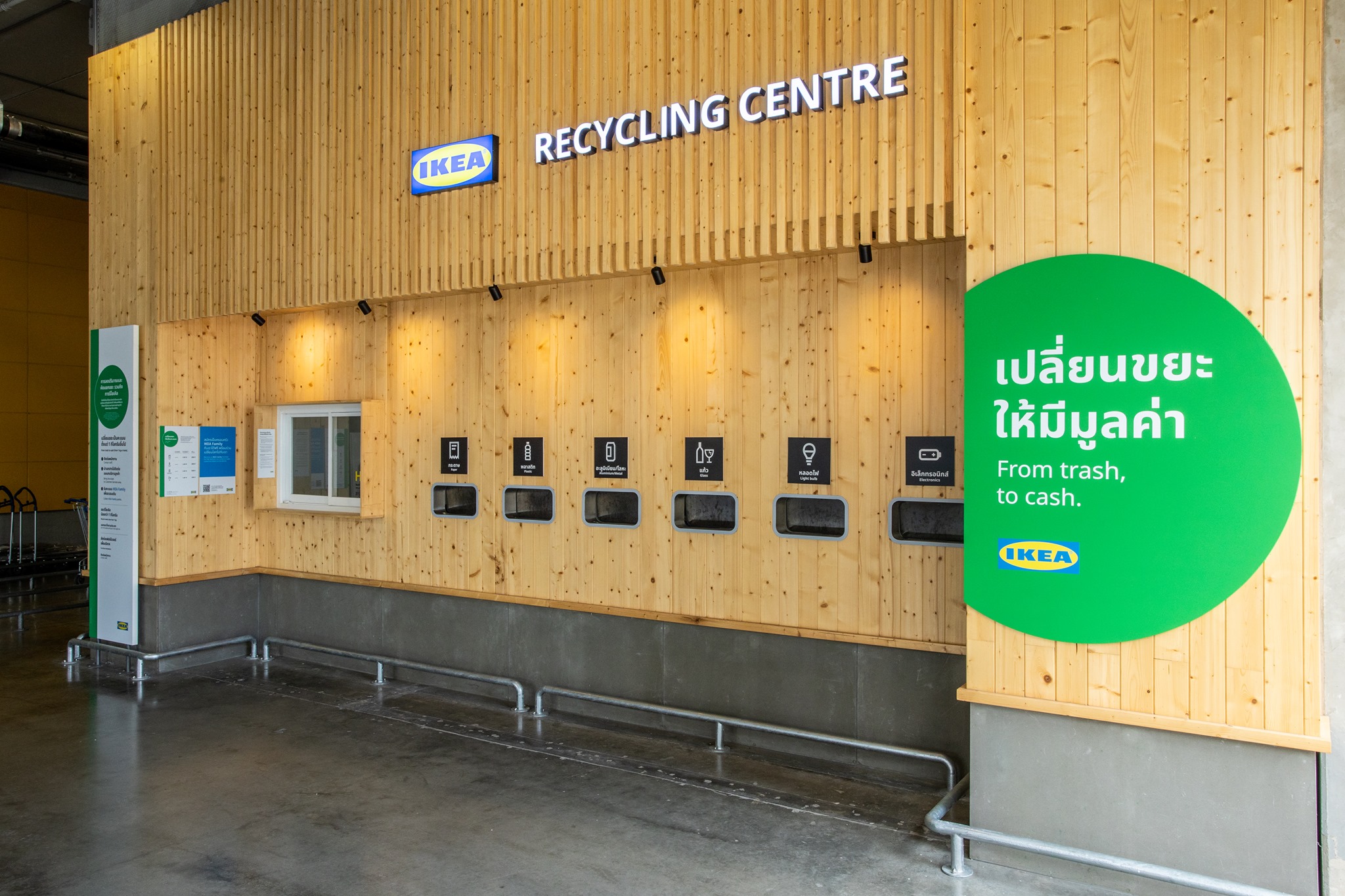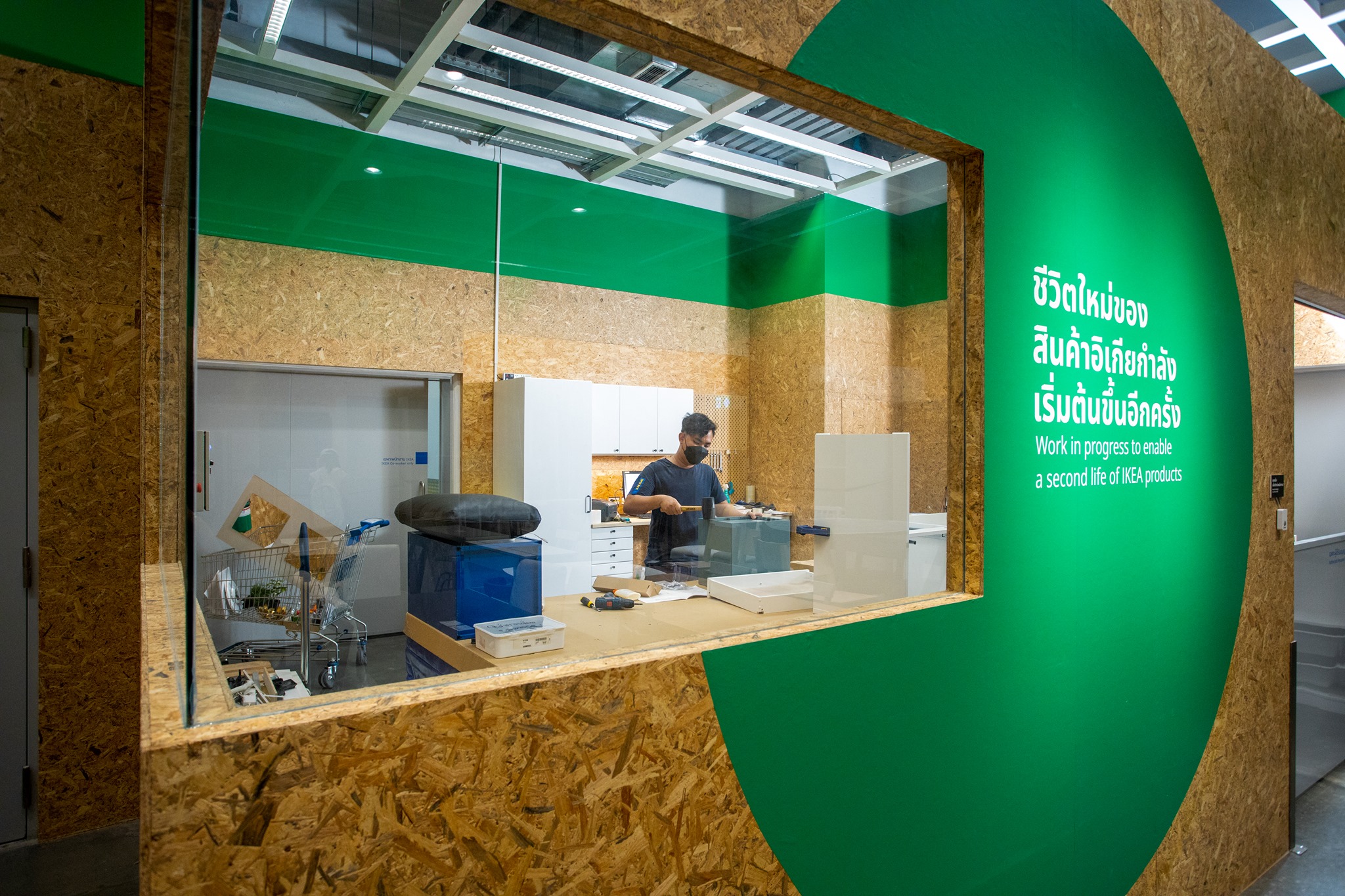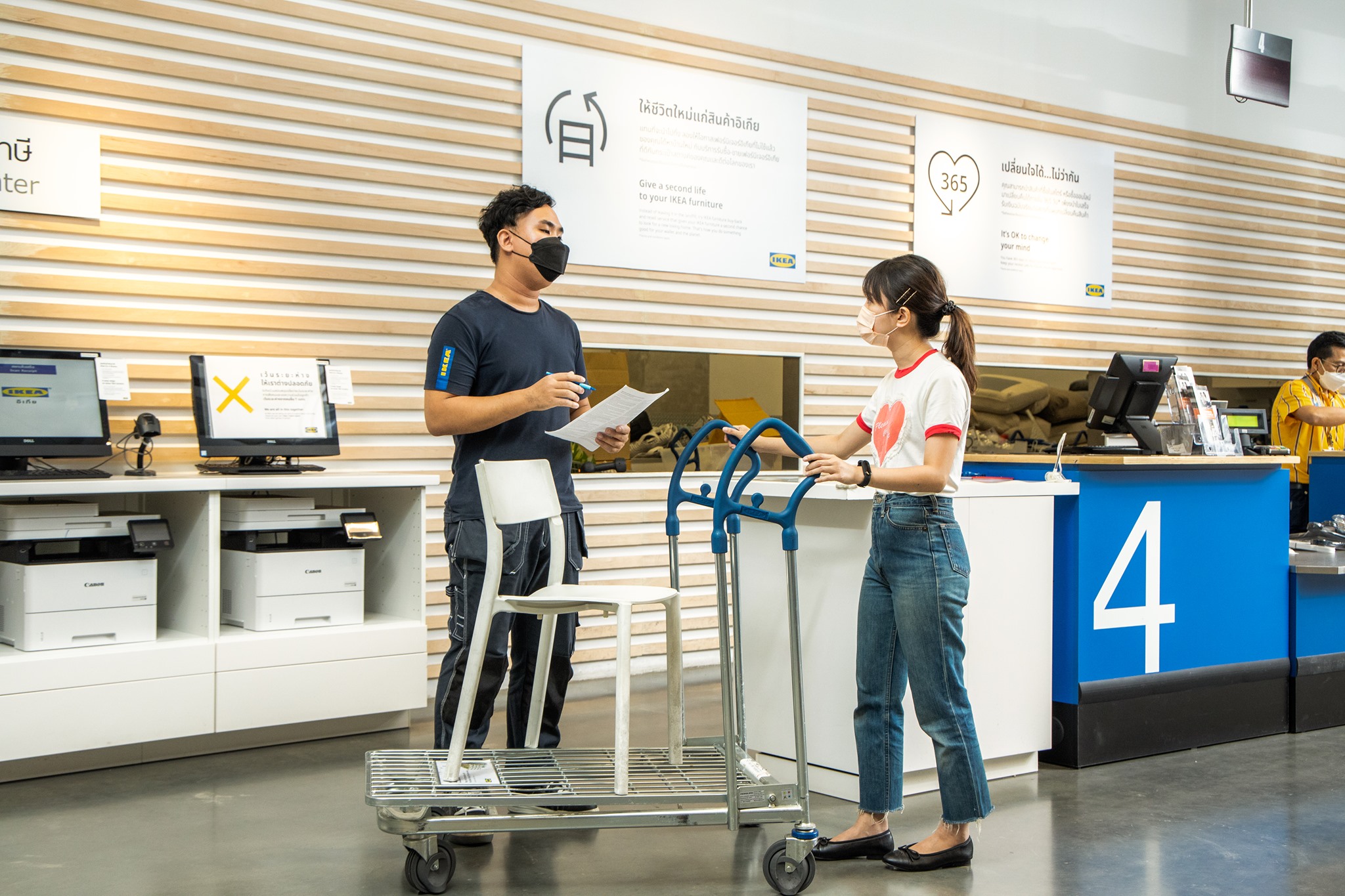The Red Envelope: Billkin and PP Krit’s Take on a Love Story Beyond the Grave
In a cinematic landscape saturated with remakes, reboots and sequels, you might ...

As part of the Swedish company’s global pledge to become a fully circular business by 2030, IKEA Bang Yai is the first store in Thailand to adopt IKEA’s global Circular Store concept. Customers can shop for secondhand furniture, bring pre-owned items for resale, and earn points by sorting and recycling their waste for collection. IKEA will reward customers with Family Points in return for bringing their recyclables. For every 5,000 points collected, customers will receive a 50 baht voucher.
“We want to be circular in every aspect of our business. We want to make it easier for customers to acquire, care for, and pass on products in circular ways—such as repairing, reusing, reselling, and recycling them,” shared Malin Nordin, head of circular development for Inter IKEA Group. “To do this, we are committed to designing all of our products to be 100% circular from the beginning, using only renewable or recycled materials, and to developing circular capabilities in our supply chain. But we can’t do this alone. To get there, we are building new partnerships and co-operations with others. Our ambition is to be 100% circular by 2030.”



As people are becoming more and more conscious of the impact their choices have on the planet, IKEA Bang Yai store manager Tom Suter hopes the initiative will encourage consumers in Thailand to incorporate sustainability into their daily lives, such as increasing recycling efforts or turning old furniture into new ones.
Apart from their circular initiatives, IKEA has committed to turning at least 50% of the main meals offered at IKEA restaurants plant-based by 2025, which will have an immense impact on decreasing food-related emissions. The company launched a new vegan “Plant Ball” last year, made from yellow pea protein, oats, potatoes, onions, and apples. The brand claims these plant balls are not only delicious but conscientious, generating only 4% of the carbon footprint of their traditional meat-based equivalents. IKEA has partnered with several vegan food technologists to create plant-based dishes, such as their collaboration with Japan’s Next Meats for their Plant-Based Japanese Beef Bowl.
“In order to reduce the climate footprint of the IKEA food business, we need to reduce the amount of traditional meatballs that we sell,” said Sharla Halvorson, the health and sustainability manager at IKEA, adding that it is part of the firm’s goal to becoming climate positive by 2030.
In a cinematic landscape saturated with remakes, reboots and sequels, you might ...
Find out more about your celeb favourites and their most loved vacation ...
These top 5 barber shops in Bangkok are where gentlemen can elevate ...
While traditional TV shows are serving us endless boy-meets-girl tales. Thailand has ...
Sailorr and Molly Santana’s black grills fuse hip-hop swagger with homage to ...
Netflix Thailand has officially announced a new price for base subscriptions We’ve ...
Wee use cookies to deliver your best experience on our website. By using our website, you consent to our cookies in accordance with our cookies policy and privacy policy